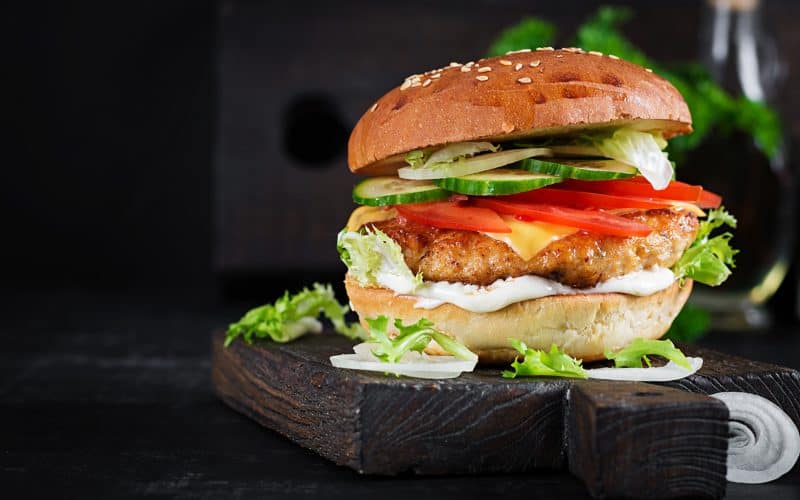Chick-fil-A is a very popular restaurant chain in America, with nearly 3,000 branches across the nation. The founder of the company, Truett Cathy, wanted Chick-fil-A to be known for its high-quality menu, which has only increased in variety since its founding all those decades ago.
Ask yourself this important question: “Can I have Chick-fil-A while pregnant?”
While Chick-fil-A has good food, pregnancy will turn your old diet habits upside down. Foodborne illnesses are especially dangerous, so you need to make sure your meal is thoroughly cooked to avoid dealing with food poisoning, diarrhea, or even salmonella.
A lot of their menu items also have high sodium, high-fat content, or both. This means that a ton of popular menu items – most notably their waffle fries – are off the table now! Even their healthiest choices, like grilled chicken or salads, start needing to be portion controlled.
While you can still enjoy eating at Chick-fil-A while pregnant, you need to mind what you’re ordering there. Stick with healthier options available, keep your portions moderate, and make sure everything you get is properly and thoroughly cooked.
Can I Eat Chick-fil-A During Pregnancy?

Make Sure it’s Cooked Properly – especially the Chicken!
Chick-Fil-A makes use of good produce, but don’t forget that their chief ingredient is chicken. Raw chicken is notorious for harboring Salmonella bacteria, which can cause high fevers, diarrhea, and stomach cramps. In rare cases, the infection is even passed from mother to child, which can leave the baby with sepsis (blood poisoning) or even meningitis (brain & spinal cord swelling).
For this reason, eating undercooked chicken during pregnancy is risky for mothers. You must be able to tell if the meal has been cooked properly – your baby’s health is at stake, after all.
Here are a couple of ways to check doneness with grilled chicken:
- Check texture – cooked chicken should be firm, but not tough – putting up some resistance while being cut, but not bending from the pressure. It shouldn’t ever feel slimy.
- Eyeball it – cooked chicken should be white all throughout with no hints of blood or even pinkness visible. Anything less than that means it’s likely undercooked.
Stick with More Nutritional Orders

Now that the health risks have been settled, you need to consider what pregnant women can eat on the Chick-fil-A menu. Nutrition is a crucial aspect of pregnancy to meet, and you only have so much available space in your stomach to work with!
While Chick-fil-A’s chicken is 100% filler free, that won’t mean much when it’s breaded and deep-fried! It’ll be loaded with saturated fat and calories, which is awful for the baby. Sadly, this means that fried chicken nuggets and waffle fries have to go for the rest of your pregnancy.
Even salads need to be considered, as most of their salads come with ranch dressing. Ranch dressing is often full of calories, sodium, fat, and preservatives. We’re not saying you have to deprive yourself here, but cutting the ranch serving in half will be much better for your body.
Fruit cups are fine though – but check their ingredients, just to be safe! If you’re unsure, let your waiter know about your situation so they can be a little extra mindful while serving your table.
Final Thoughts
When it comes to pregnancy and fast food, Chick-fil-A is actually one of the better chains to eat at when pregnant – so long as you take the right precautions and avoid overindulging.
Feel free to eat at Chick-fil-A when you’re pregnant, but know that you can’t order everything you used to – limit the amount of sodium, fat, and calories in your meals. Make sure that your food is always cooked properly too, as raw or underdone chicken is very risky for prospective moms.
Lastly, make sure to leave the final say with your doctor! This article isn’t meant to substitute for medical expertise, and you’d always be better off trusting your healthcare provider’s advice.
